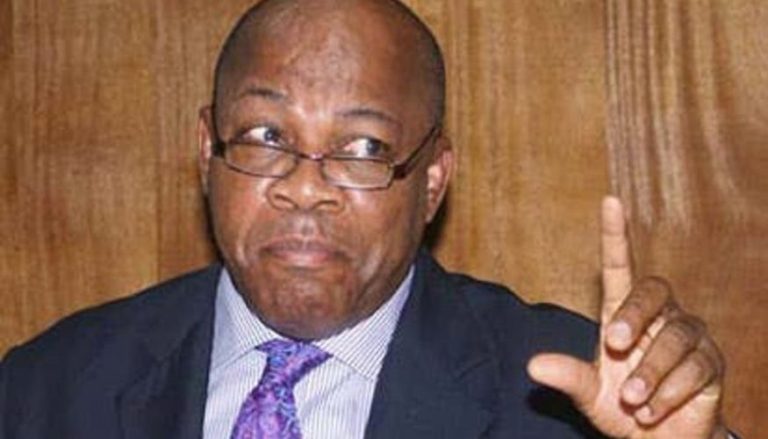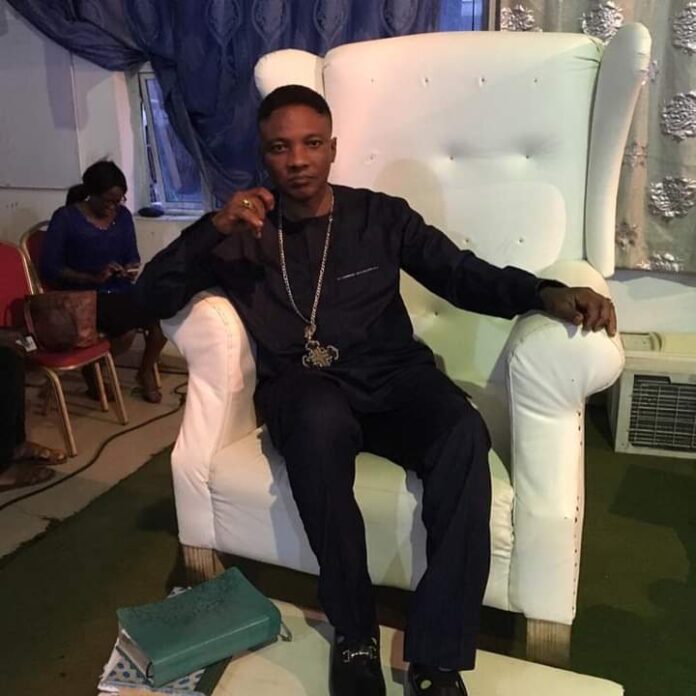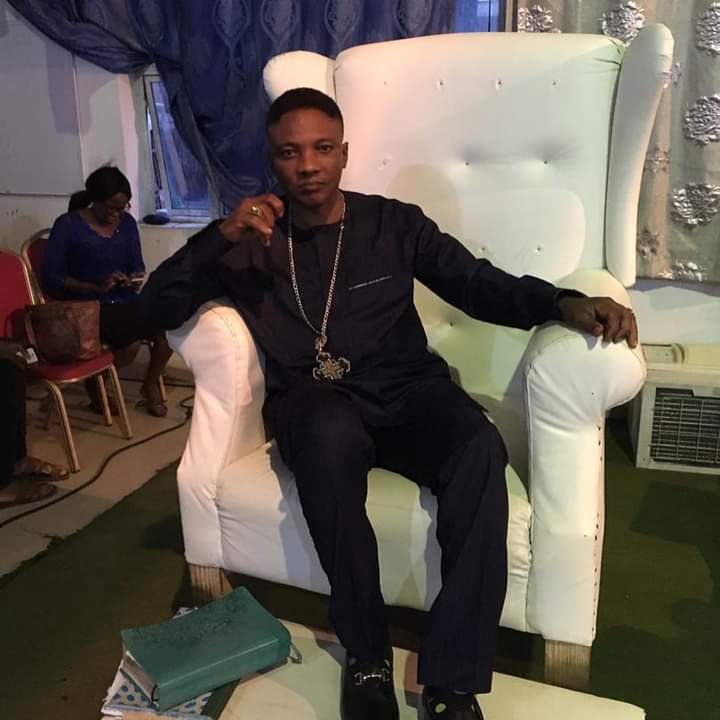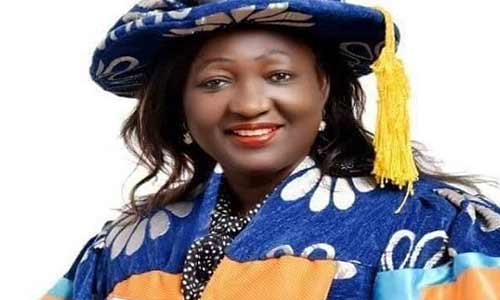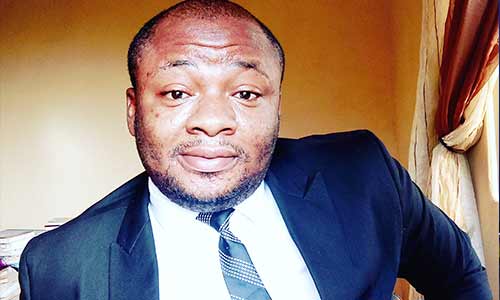Fellow Nigerians, please permit me to make some quick clarifications. I’m not a Lawyer.
I’m not a Prosecutor. I do not work for EFCC, ICPC, SFU, CID, DSS, NIA or any of such organizations. I’m a journalist, a reporter, a columnist, a publisher, a social media addict, an author, etc, who is amazingly passionate about his career. Journalism happens to be the most flexible profession on planet earth. That is the reason anyone can be a media practitioner. There are infinite genres of journalism, including investigative, developmental, professional, lifestyles and entertainment, political, business, finance and so on. You can stretch this, ad infinitum.
I chose one niche only, Lifestyle and Entertainment, and decided to run with it. I leave it to the judgment of my fans and critics to decide whether I have made a success or failure of it. One fact is clear. Every soul has a choice of what to read or watch. If you visit any W. H. Smith Bookstore, in London, you will always be welcomed by an avalanche of books, newspapers and magazines and you would be spoilt for choice, if you’re a voracious reader like me. Please, endure my preamble. I’m not just a reporter, I’m trained to write. Armed with a Master’s degree in Literature-in-English, from the Obafemi Awolowo University, Ile-Ife, I migrated to Lagos, in search of greener pastures in 1988. I was exceptionally lucky as fame and relative fortune smiled at me, sooner rather than later, not on a platter of gold but by dint of hard work. I’m a workaholic.
But I will not bore you with my comprehensive trajectories of journalistic conquests. I had to navigate and meander my ways through the labyrinth of a forest of a thousand daemons but at every stage I triumphed.
I was lucky to have had the traits of a typical Taurean. I’m a bull. I’m self-assured and very confident. I’m stubborn and stoical. I’m focused. No one can discourage me. I’m gentle but ready to pounce when threatened, or unnecessarily provoked. I have kept faith with my job. I enjoy every bit of it. I love my readers and fans. I try to tolerate those who come at me but respond whenever they cross the red line of abject ignorance. I must know that I understand the plight of some of my traducers. First, they do not understand my job but pretend to be experts, and you wonder why they can’t publish theirs, if so good. Then there are arrogant colleagues who discriminate against you for various reasons: Dele did not attend any journalism school; Dele hobnobs with the rich and famous; Dele made a fortune by praising corrupt Nigerians; and so on, all untrue, as I shall demonstrate, in a jiffy.
The first allegation is unfounded and baseless. You do not have to attend a journalism school before you can be regarded a reporter. The principal tool of media is language. It was the reason I was employed instantly by the Editor of the African Concord magazine, Mr Lewis Obi, in 1988. That was the reason I was selected as a pioneer staff of Weekend Concord in 1989, and enjoyed rapid and sporadic promotions from my Editor, Mr Mike Awoyinfa. It was the reason I gained the attention of our Managing Director, Dr Doyinsola Abiola, and our dear beloved Chairman, Chief Moshood Abiola. It was the reason I became the highest paid Editor at Classique magazine, in 1990, at the special invitation of Publisher, May Ellen Ezekiel Mofe Damijo. Same goes for my being appointed the pioneer Editor at Leaders & Company, in 1992, in what metamorphosed into Thisday newspapers, by Publisher, Prince Nduka Obaigbena. Each of these could not have been fluke.
Now imagine, how a self-professed journalism policeman wrote during my 60th birthday celebration that “Dele Momodu is not a journalist!” The man must have assumed that that was the best congratulatory message he could send to me on my special day. Such is the irresistible effect of hate and envy. I deliberately did not give him the attention he was seeking by not responding and will still not dignify him with a mention of his name.
I have suffered many such attacks from colleagues, friends, haters, and others for simply minding my business diligently, professionally, ethically and successfully. If there is any offense I have committed, it is my refusal to join them in mob journalism, media lynching, practicing entertainment journalism as opposed to bolekajanism, granting access to everyone whether saints or sinners, and so on. Do I not have the right to my own style while you also have yours?
This spate of attacks started about 20 years ago when Ovation International magazine published the dual weddings of General Sani Abacha’s daughters, Zeynab and Gumsu. All hell broke loose. A friend of mine was in a hurry to declare a fatwa on Ovation International. The magazine must die, many chorused. I was unmoved by the empty threats.
They told me Nigerians have decided to boycott the magazine and I asked the venue of their meeting. Instead of the magazine dying, it sold out completely. Unknown to my attackers, I had my role models and learned so much from them, theoretically and practically. One of them was The Madiba, Nelson Mandela, who despite spending 27 years behind bars, with many of his comrades murdered, he came back preaching peace and reconciliation. Our own country is in this big mess today, and in perpetual strife and stress, because of our proclivity and propensity for rabid vindictiveness. I found the Abachas newsworthy, I wanted to unveil where and how they lived, and I returned with a monstrous scoop. We even published never seen before pictures of the mausoleum in which Abacha was buried. If I were an American, I would have earned millions of dollars from owning the copyright. Yet my self-righteous critics and colleagues were happy to steal our pictures, shamelessly and lavishly publishing them, without authorization.
Let me give one more example before we get to Senator Dino Melaye’s gallery of a home in Abuja. About five years ago, I was in London when the news of the arrest of former Minister of Petroleum, Mrs Diezani Alison-Madueke, by the British Police, hit the airways like thunderbolt. The reporter in me immediately sprang into action. I pressed a few buttons here and there and soon found those who knew her movements. I pleaded with them to arrange an exclusive interview with her, a seeming impossibility at first. She told my sources that I was an enemy of their government and one of those whose pens sacked them from power. I sent word back that I could be trusted with reporting whatever she says, verbatim, without embellishments or misinterpretations. Once I gave those guarantees, she agreed to meet me at a secret location. I was already seated before she came. And she left before I left. Our mutual contact was present. She was clutching some files which turned out to contain some hospital documents. She looked drained of her usual effervescent life and glowing looks. I was shocked.
We chatted briefly and she told me she was too tired to talk that evening after going through her dose of chemotherapy. I prayed for her recovery, since I’m not a vulture who takes delight in macabre ritual dance of death. We agreed to meet soon, and she left. Our contact promised to make the interview possible, but I should be on standby for an impromptu date and venue. When the call eventually came, I was given the shortest notice possible and my wife had to drive me when I could not get a cab sooner. The venue turned out to be a breakfast restaurant around Regents Park. When I walked in, I saw a black lady who was not Diezani. She recognized me and invited me to a corner where a reservation had been made. Diezani soon walked in clutching some documents again. Because it was morning, this time, I was able to fix a proper gaze on her. Her eyes were bigger and almost bulging out of her sockets. Her hair was substantially off, perhaps the fallout from her chemo treatments, I soliloquized.
I spent time with the famed woman who now cut a pitiable figure in front of me. However, she did not make any effort to be pitied or considered a victim. Despite her palpable discomfort, she was determined to express herself and debunk the stories that she had stolen anything from 20 billion dollars upward. As we spoke, I fired different salvos, what my boss, Mike Awoyinfa, would have called “satanic questions”. She answered some and refused others because she was still under investigation and would not want to jeopardize her case. I used my iPhone to take about hundred pictures from different angles. She cooperated beautifully and I reiterated my promise not to misquote her. We took personal pictures together, for the records, and off I went.
I was pleased with myself, that I got to interview the most wanted woman in Nigeria. Off I went on my other missions. I sent the interview to my team. It came in handy at a time we were already working on an online newspaper to be called The Boss. I was in Dubai when we released this spectacular story. The first person to call me was Omoyele Sowore, the Publisher of Sahara Reporters He requested for unmarked pictures of Diezani. I said I couldn’t oblige since I did not have authorization to hand out her pictures. Also, I suspected the angle of the story or the slant Sahara Reporters would likely bring to the story. All my journalism career, I have steadfastly built a reputation as a mild-mannered reporter with the ability to interview the biggest newsmakers. Days later, Sahara Reporters interviewed a certain lawyer in Lagos who tried to cast aspersions on my exclusive interview by saying Diezani did not grant the interview. I remained unperturbed. Diezani soon reached out to say she never said so to anyone and apologized for the embarrassment.
As soon as our story went out, I received blistering attacks for talking to Diezani. Many of them called me unprintable names. I must have collected part of her billions. Diezani had no cancer. Dele was the one spinning such stories to attract pity. I endured it all.
To achieve success in a land littered with angry people, you must sometimes acquire the skin of a porcupine. Once again, my attackers all used my pictures and story they couldn’t get directly, free of charge!
Let’s now go inside Dino Melaye’s palace in Abuja. I was in the Federal Capital City last weekend and decided to visit Dino, a man who had always treated me with the respect of an avuncular friend. While our friendship started over a decade ago, Dino continues to shower me with tremendous regard. For example, while he commands about two million followers on Twitter, I control one million and three hundred followers. Yet I’m the only soul he follows. I still can’t explain why but I’m one of those who can advise him on any issue, and he won’t feel offended. I had never been to his house and decided to pay him a visit last Saturday. I’m glad I did.
Dino was having a steam session when I arrived. He had his head buried in a bucket, steaming with some hot balms added and covered up with a thick blanket. He signalled to me to wait for him. He later told me he was prone to breathing problems and so must battle any likely infection of the nose and lungs. We spoke generally and then I requested for a tour of his beautiful home. He gladly obliged, but let me reiterate that it was not a planned session. It may have been difficult for any journalist to gain such unrestrained and unrestricted access to every part of that monumental home, but he granted me that privilege as a Brother he loves unconditionally. He once said he would take a bullet for me and I also love him, warts and all, no matter what anyone says about him. Ours is not a business transaction. I respect those who respect me and I’m not in the habit of judging anyone.
Let me say for emphasis, that I was totally wowed by what I saw. I have covered many homes of the rich and famous, including that of Ambassador Antonio Deinde Fernandez, in New York, Alhaji Mai Deribe, in Maiduguri, Chief Richard Osuolale Akinjide in Stanmore, England, Jimoh Ibrahim’s mansion on The Bishop’s Avenue, Chief Gabriel Igbinedion’s home in London, South Africa, Abuja and Benin, Otunba Subomi Balogun, on Glover Road, Ikoyi, Lagos, and others, but Dino’s home turned out to be an artistic masterpiece. Everything in the house was, obviously, deliberately and meticulously, put together. From his vintage and contemporary cars, artworks, dogs, super bikes, chandeliers, gold plated dinner plates and cutlery, elevator, bars, bedrooms, floating swimming pool, assorted drinks which he does not drink, clothes, shoes and the most controversial, over 200 pieces of exotic wristwatches.
I traversed the building inside and outside while I was transmitting live on Instagram. I will rate this unprecedented work of journalistic excellence one of my best stories ever, even if the critics develop epileptic spasms in the process. Everyman has a right to his existence and lifestyle. Very young artists in America fly private jets. The attacks here are because Dino is a politician and there is too much hunger in the land. Every one of the critics was pontificating and pointing accusing fingers at Dino as if they would reject being dashed that architectural edifice, if only for a few days. Worse still, they are angry that I did not ask how he got the money to acquire such expensive taste. I’m sorry, that’s not my job as a celebrity reporter. Others have the capacity to investigate supposed looters, while my focus is on how the money is spent.
From sufficient experience and exposure to men and women of means, I know that Dino has never been in such a position to have executive access to government funds at that level.
Even if he were the Senate President, or Governor of Lagos State, he could not have amassed such stupendous wealth. Where then did he get all that money from? My answer is I don’t know, and I did not expect him to tell me his secrets. All I know is some people are very talented in the art and science of making money and I should never assume I know how or all.
I read one of my attackers yesterday. He is a Facebook journalist who feels so important about abusing anyone in sight. I only felt pity for him because I could feel the bitterness that was choking him up. I wondered why he couldn’t channel all that energy into building his own business and brand instead of wasting his strength on demolishing others. He and his ilk should be told that being bitter can never make your own life better…
It is a fact of life…




